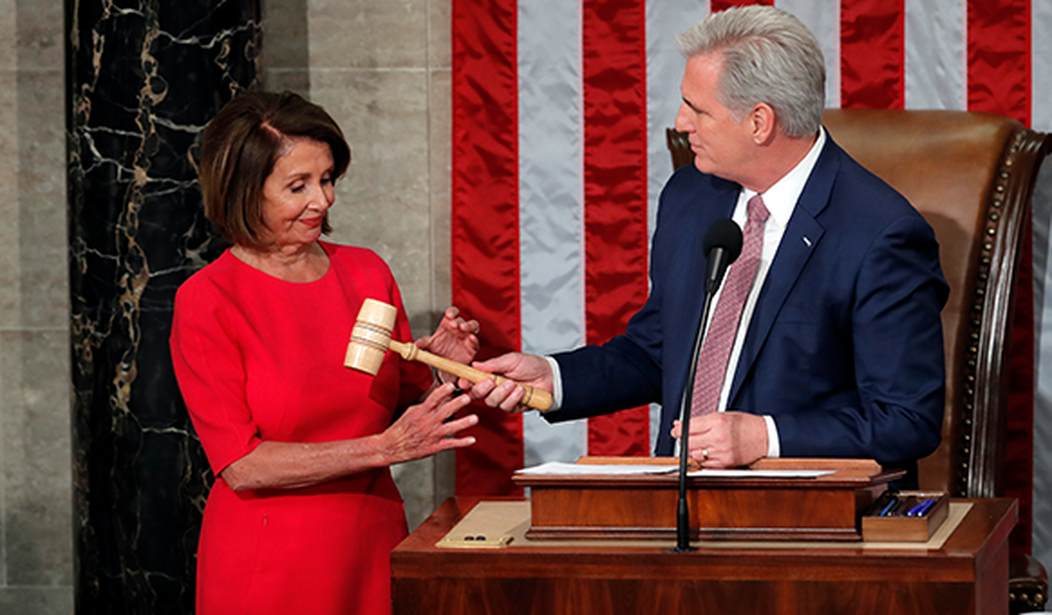Why did I see this when I went to check my email?
From Harvard no less:
“Larry Tribe, professor of Constitutional law at Harvard Law School, says that as long as Pelosi is opposed to the State of the Union happening, as scheduled, on Jan. 29, it won’t happen.”
“The form in which the State of the Union address is delivered isn’t constitutionally specified, but if it’s to be delivered as a Joint Session of Congress as has become the custom, the House and Senate must jointly adopt a resolution to schedule it. Without that, he can’t come. Neither chamber has adopted such a resolution yet, and as long as Pelosi opposes it, it’s DOA.”
This is not a constitutional issue that leaves any room for debate, regardless of what Mr. Tribe may say.
Yes - the Constitution does not dictate a particular way in which the president shall provide the Congress with the information on the State of the Union. But, recent tradition has that it be delivered before a joint session of Congress.
The president could decide to deliver it in what has been the most recent and accepted tradition by exercising his power to convene both Houses.
Article 2 Executive
“Section. 3. He shall from time to time give to the Congress Information of the State of the Union, and recommend to their Consideration such Measures as he shall judge necessary and expedient; he may, on extraordinary Occasions, convene both Houses, or either of them ....”
There is much clarity given to the issue in a Special Memorandum by William P. Barr, then Assistant Attorney General, Office of Legal Counsel in 1989. He also served as Attorney General from 1991– 1993 for the first Bush administration. Most importantly, he is the current Trump nominee to replace Jeff Sessions. One would assume he would advise the president on the constitutionality of convening both Houses of Congress for whatever purpose the president deemed “extraordinary.”
Recommended
In his 1989 Memorandum Barr points out that “President Truman convened both Houses of Congress to consider the questions of inflation and foreign aid.”
I believe a stalemate over a border crisis qualifies as an extraordinary occasion.
Here is an excerpt form Mr. Barr’s special Memo:
“Both the text of the Constitution and the purpose of the provision indicate that the President’s constitutional power to convene either House extends to periods within sessions of Congress. His power is stated in the broadest possible terms; it is not limited only to when Congress is not in session.3 This is appropriate to the purposes of the clause — namely, to ensure that the President can summon Congress to Washington so that Congress and the President together may face a matter of national import.”
The president could deliver his message any time, anywhere, even have a written message hand delivered, as was done early on in our history.
If President Trump considers the building of a Southern barrier a national security issue and an extraordinary occasion, and he would like “to recommend to Congress for their consideration” his plan for the barrier’s construction, it is well within his power to convene both Houses of Congress.
The Speaker is the Speaker; she is not the landlord of the House. It is the people’s House and the chief executive is in control of the government.
The decision on how the message to Congress is to be delivered is within the discretion of the president. Traditions can be made and they can be changed.
The president can convene both houses pursuant to the Constitution and deliver his message at that time, and since there is no vote to be taken after the president's address, there is no need for a quorum in either house; and so if the Democrats decided to boycott his address, they could.
If Ms. Pelosi does not want to attend because she feels that there would be insufficient security that would be her decision to make, but when the president convenes the House and the Senate, one would expect that the Speaker should be there.
Her refusal to attend would not create a constitutional crisis; it would just be another incredibly disrespectful act heaped upon a growing pile of disrespectful acts committed by the Democrats over the past two tears.
The Democrats didn’t seem to be much interested in what the president said during his last address, so it effectively would make no difference if they did stay home.

























Join the conversation as a VIP Member